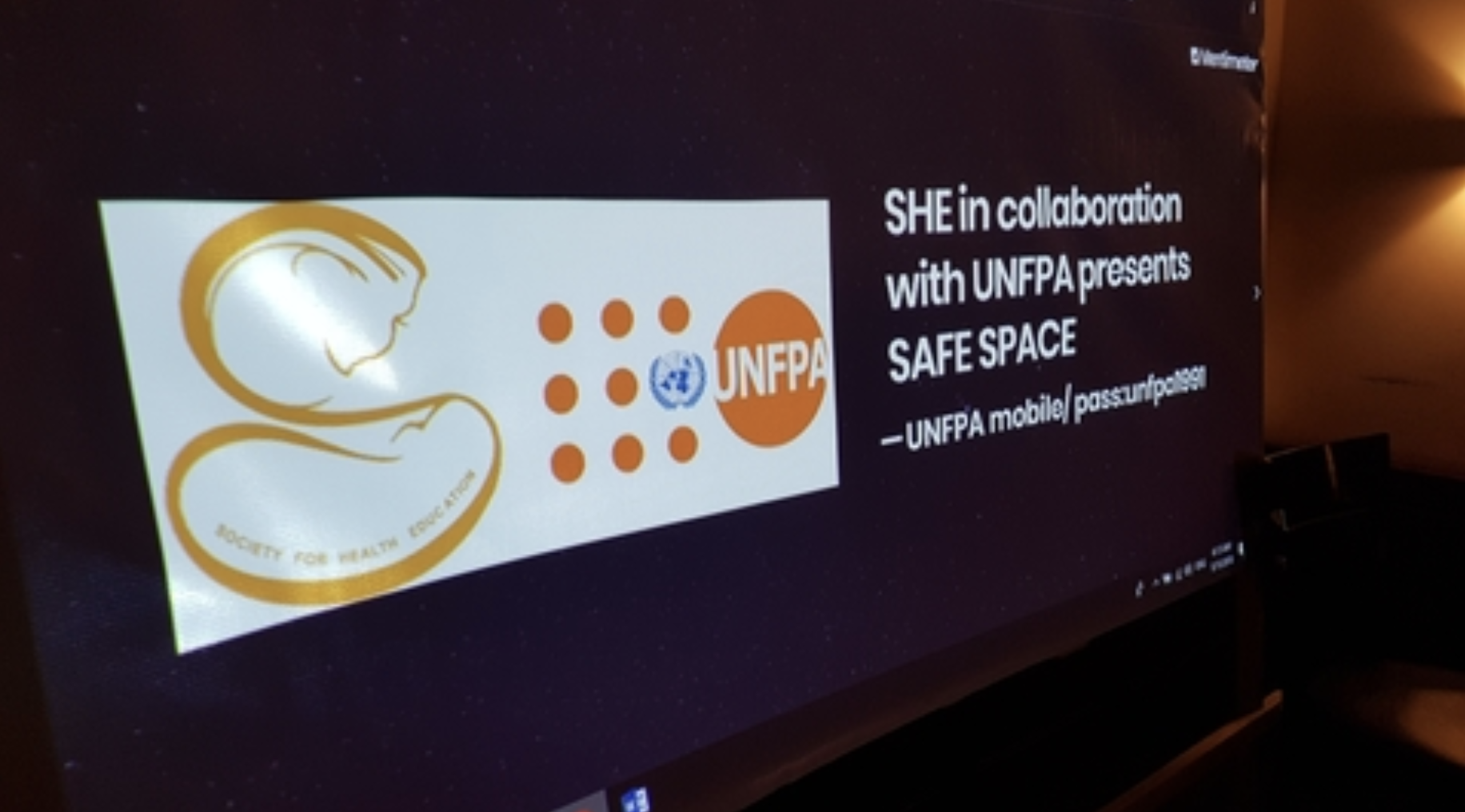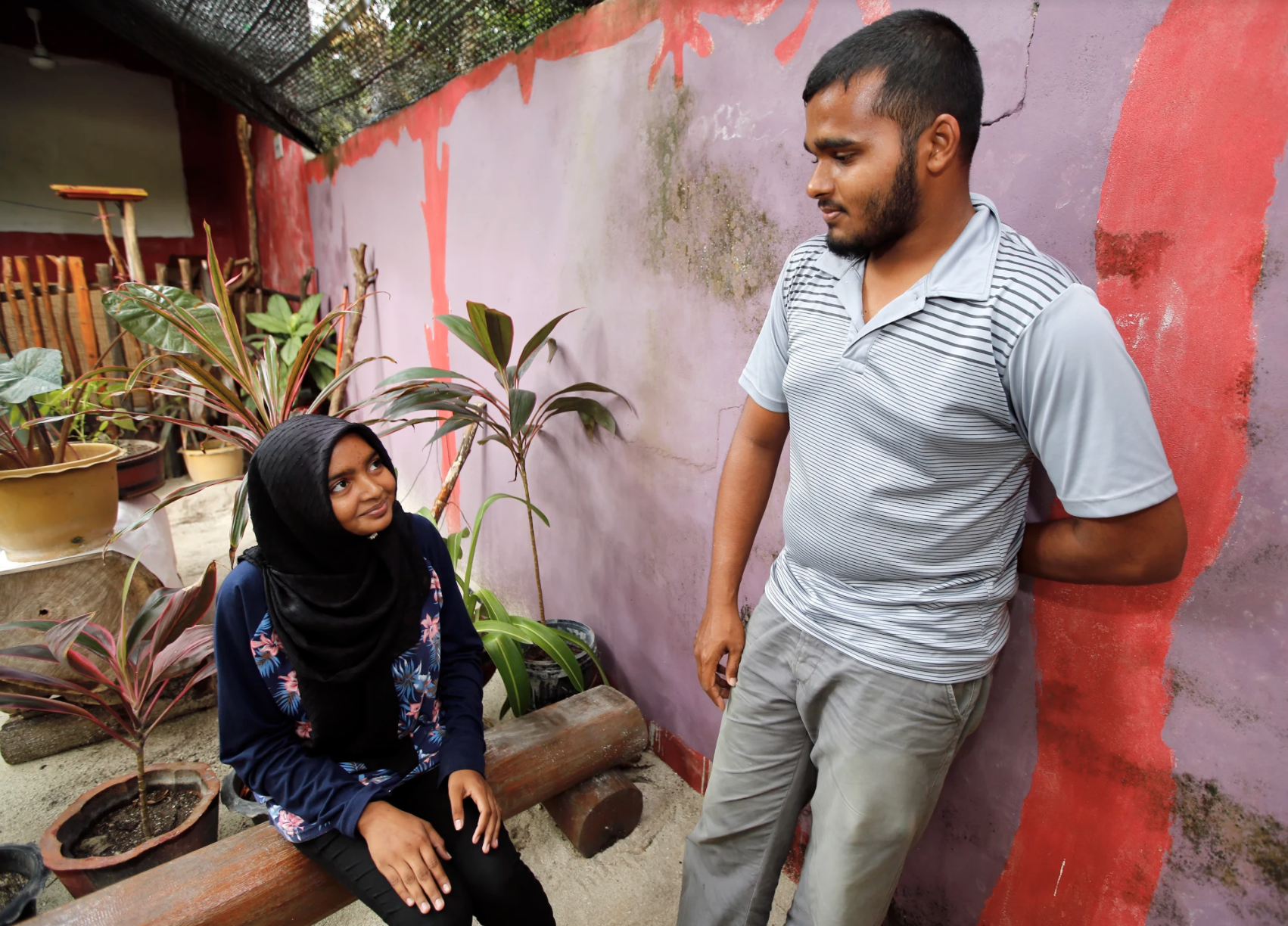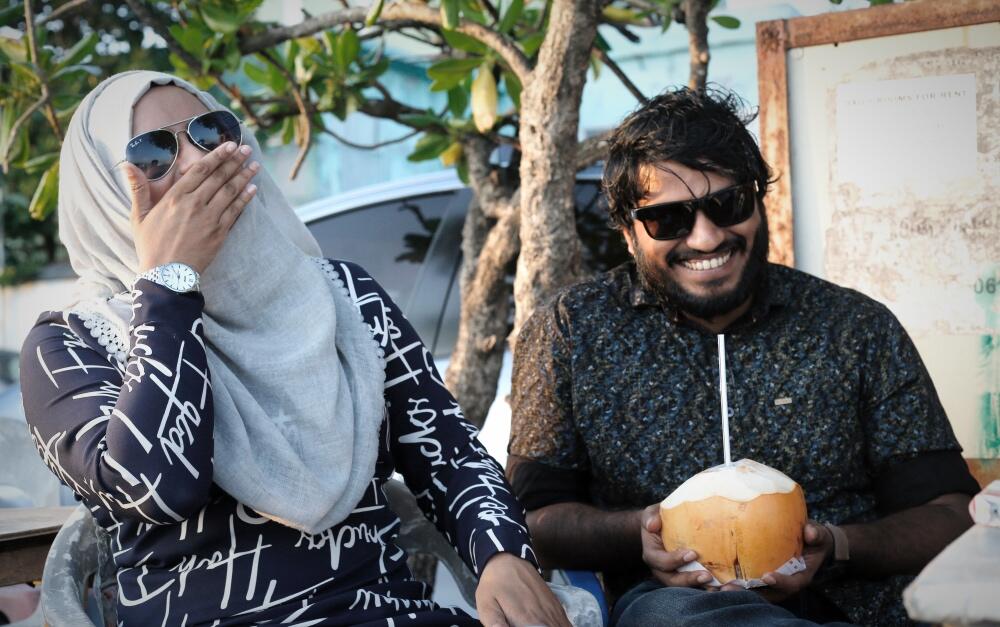“Today we’re going to talk about healthy relationships,” says Azzam, an energetic young activist and facilitator at a session for 30 young people on reproductive health in Male’, capital of the Maldives.
The interactive session, organised by UNFPA and the Society for Health Education (SHE), the sole organisation providing information for young people on sexual and reproductive health and rights in the country, is one of a monthly series of interactive quizzes held across Male’ to help young people forge healthy, happy and rewarding relationships.
“On average, at what age do Maldivians get married?” Azzam asks the group, and they begin punching the answers into their phones, which are then anonymously displayed on the big screen at the front of the room.
“Young people get married early because they long for privacy. They live in very small apartments shared with their parents,” says a brave girl at the front table, speaking out on an issue that is more and more considered a taboo in the increasingly conservative sociocultural environment in this Islamic nation.
Many nod in agreement, and Azzam explains that the average marriage age is actually 25 years for men and 22 years for women. But divorce is on the rise, he explains, and even within the range of 15-24 years, about 10 per cent of young people are already married for the second or third time.

“So, what’s an unhealthy relationship then?” Azzam asks.
17 of the young people hit the right answer: “When I am coerced to do things that I don’t want to.”
Yet others go for the option that brings laughs: “When we have burgers for breakfast.” Only a handful plump for the answer titled “Emotional manipulation and violence.” It is a sensitive and difficult topic after all.
In the Maldives, about 20 per cent of women aged 15-49 who had ever been in a relationship have reported experiencing physical and/or sexual violence by an intimate partner, while 29 per cent have reported experiencing emotional abuse.
“You have to be good to your partner, obviously”, says one of the boys.
“Right,” Azzam replies. “Pressuring someone to have sex against their will, even if you don’t use physical force, is always rape.”
“Consent matters,” adds Aishath, also from the Society for Health Education. “When a girl says no, it means no.”

The quiz and group chats also cover contraceptives, attitudes towards gender, female genital mutilation, menstrual and sexual hygiene, and sexually transmitted infections.
As the session comes to a close, Azzam invites participants to become advocates for sexual and reproductive health themselves. “Try to talk with friends, family or others about sexual assault, contraceptives and consent,” he urges.
Sha, aged 22, recently took up the offer to join the Society for Health Education. “I’m really happy to be part of this session,” she says. “I wish we had more opportunities like this so we can talk openly about these important skills, so we can all make healthier life decisions”.
Building on the success of group sessions in the capital, UNFPA and SHE are looking to roll out the module across the country to help ensure all young people in the Maldives have the information they need to make responsible, informed choices about life and love, thereby strengthening their ability to reach their full potential.
- Tatiana Almeida



